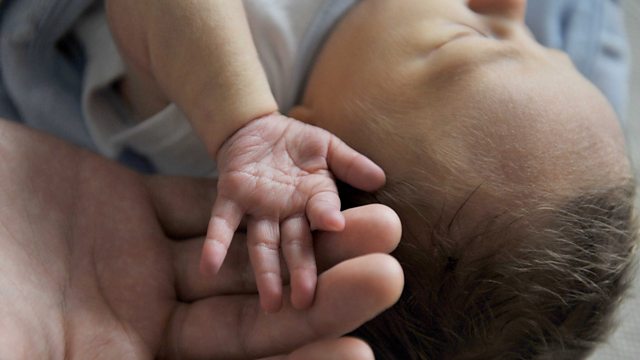
Three Parent Babies
Three parent babies; News from AGU 2016; Weather on distant planet; Energy from volcanoes, Europe’s coldest decade; Digital traces
Babies made from two women and one man have been approved by the UK's fertility regulator. The historic and controversial move is to prevent children being born with deadly genetic diseases. Doctors in Newcastle - who developed the advanced form of IVF - are expected to be the first to offer the procedure and have already appealed for donor eggs. James Gallagher explains which rare mitochondrial diseases could be prevented and how the process works.
News from AGU 2016
BBC Science Correspondents Jonathan Amos and Rebecca Morelle report from this year’s Fall Meeting of the American Geophysical Union being held in San Francisco. They discuss monitoring the melting of glaciers from space and from spy planes, and a remarkable close-up encounter with a gigantic underwater avalanche. It is the first time researchers have had instruments in place to monitor so large a flow of sediment as it careered down-slope. The event occurred in Monterey Canyon off the coast of California in January. The mass of sand and rock kept moving for more than 50km, as it slipped from a point less than 300m below the sea surface to a depth of over 1,800m. Speeds during the descent reached over 8m per second. An international team running the Coordinated Canyon Experiment (CCE) is now sitting on a wealth of data.
Weather on Distant Planet
Scientists have been describing the weather on an exoplanet – in other words a planet orbiting a sun other than our own – called HAT-P-7-b. The observations come from the Kepler space telescope. David Armstrong of the University of Warwick in England has been telling Gareth Mitchell more about this distant hot windy planet, a thousand light years away.
Energy from Volcanoes
Geologists say they are close to creating the hottest borehole in the world. They are drilling into the heart of a volcano in the south-west of Iceland and should reach 5km down, where temperatures are expected to exceed 500C (932F), in the next couple of weeks. The researchers want to bring steam from the deep well back up to the surface to provide an important source of energy. Rebecca Morelle visited the site.
Europe’s Coldest Decade
In the midst of the Little Ice Age, winter temperatures plummeted even lower in the extraordinary decade of 1430-1440. Rivers, lakes and coastlines froze over year after year. Seeds perished, flocks dwindled, famine ensued, and soon minorities and witches were being blamed for the miserable conditions. Roland Pease hears more from historian Chantal Camenisch and Kathrin Keller of Bern University who looked into what may have been the worst decade in European weather in almost a millennium.
Digital Traces
Researchers at Lancaster University in the UK suggest that iPhone users are younger and more extraverted than people who use Android phones. Gareth Mitchell talks to the psychologist, David Ellis, about the research that flags up how people choose technology.
(Photo credit: A new born baby - three days old © BBC)
The Science Hour was presented by Gareth Mitchell with comments from BBC Science Correspondents Jonathan Amos and Rebecca Morelle
Editor: Deborah Cohen
Last on
More episodes
Broadcasts
- Sat 17 Dec 2016 23:06GMTBBC World Service except News Internet
- Mon 19 Dec 2016 06:06GMTBBC World Service South Asia
Podcast
-
![]()
Unexpected Elements
The news you know, the science you don't

